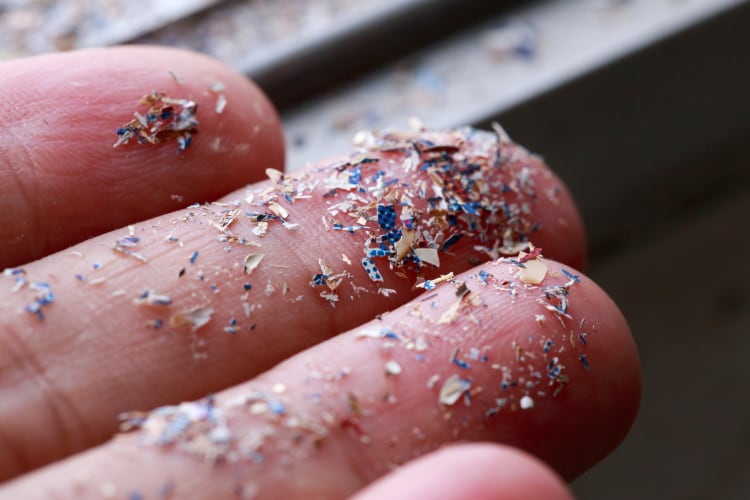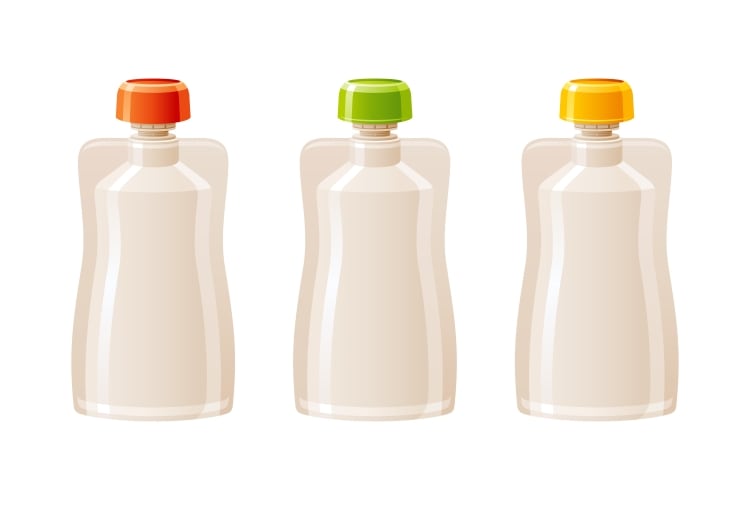Small plastic particles known as microplastics have been detected in dairy and meat products and in the animals themselves.
Research conducted by The Free University of Amsterdam and commissioned by the Plastic Soup Foundation (PSF), analyzed samples related to cows – milk, meat, feed and blood – collected from six farms in the Netherlands including organic farms.
Plastics were found in all blood samples, all non-fresh feed samples, 18 of the 25 milk samples, and seven of the eight beef samples. There was no difference between the samples of animals which were bred at organic versus regular farms.
While the researchers concluded that ‘hundreds’ of samples would be required for a more formal exposure assessment, the pilot study had succeeded in proving that plastic traces were detectable in the animals, their feed, and milk and beef products, and assumed that humans were also exposed to plastic by consumption of meat and milk.
“Much research is being done looking into possible health effects of microplastics,” said a PSF spokesperson. “Very small particles can penetrate deep into the body and the evidence is building that micro- and nanoplastics can indeed affect the functioning of the brain, lungs, liver and spleen, stomach and intestines, and immune system.
“Factors that influence toxicity include the dosage, duration of exposure (whether it is acute or chronic), route of exposure, species, age, sex, and environment. We simply do not know yet at which dosage microplastic particles become toxic.”
Milk samples: on the farm and off the shelves
The study tested tank milk, hand drawn milk and packaged supermarket milk, with eighteen of the 25 milk samples (72%) found to contain plastics. In the majority of these however, no plastic particles were detected above LOQ.
From the supermarket milk samples, the researchers tested four UHT milk samples including a lactose-free variant; fresh skimmed milk (2), as well as semi-skimmed (9) and full-fat (1) milk. There were also five hand-milked and tank milk samples each.
Feed
One likely explanation of why plastics end up in cows themselves is through their feed, the researchers argued. They tested both feed pellets and fresh feed, finding plastics in all non-fresh feed.
“We would advise famers to call their feed supplier and inquire to what degree they can guarantee that their feed is plastic free,” the PSF spokesperson advised. “Also, they could contact their local Food Safety Authorities. Farmers have the right to know what exactly they feed their animals.”
In the Netherlands, livestock farmers are required to remove all plastic packaging from the feed before offering it to animals. But the researchers warned that 'despite the notice, the plastic wrapping of feed bales are still not always removed for various reasons, e.g. keeping the roughage moist or keeping air out'.
PSF’s spokesperson explained further. “The Dutch Food Safety Authority is responsible for quality monitoring of animal feed. It tolerates a limit of 0.15% by weight of microplastics in the feed. The EU regulation, however, maintains a zero-tolerance policy. In our opinion, the only correct standard is the European one that bans plastic in animal feed.
“Whether or not to eat meat or drink milk is every one’s own choice, PSF has no opinion about that. But as a consumer you have the right to food that is not harmful to your health. That is why we think it is important to make your voice heard. Here in the Netherlands, we call on the government to ensure that the Dutch food chain is plastic-free. We have published a petition on our website.”
'We find nothing'
FEFAC, the European Feed Manufacturers' Federation, was approached for comment but did not provide one. SecureFeed, the body that monitors animal feed products in the Netherlands, issued the following statement: “The Plastic Soup Foundation's suggestion that packaging material be processed in animal feeds as an existing practice is not apparent from SecureFeed's monitoring and audit data.”
“The animal feed sector uses residual and by-products from the food industry. Think of broken cookies and bread that is not sold in the supermarket. This is suitable as a raw material for animal feed and prevents food waste. For the processing of return and residual flows, there are unpacking protocols for the removal of packaging material by specialized companies and checks are carried out for the absence of packaging material in the produced feed material.
“In addition to the aforementioned measures, SecureFeed monitors feed materials produced from return and residual flows from the food industry. Among other things, attention is paid to the presence of residues of packaging material (such as paper, cardboard, plastic or aluminum). (...) In the vast majority of the analyses, we find nothing. In a very limited number of cases, values are found that are still well below the detection limit... There are also regular audits at companies that process former foodstuffs.
The body concluded: “Microplastics, as the researchers suggest, are everywhere in our environment and hardly seem to be banned from the food chain. More knowledge about this will help keep these substances out, but measures may need to be taken earlier in the chain. SecureFeed is contacting the researchers to get more information about their research.”



